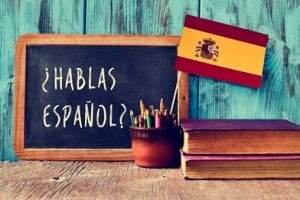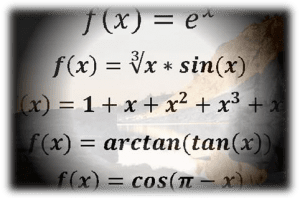What will I study?
Throughout the A-Level course, you will study different areas of Law. In Year 12 Criminal Law, you will learn about different violent offences, ranging from assault and battery to GBH, as well as property offences such as theft and robbery. You will also look at areas of Tort Law, including negligence and nuisance. In Year 13, you will continue with Criminal Law, examining the law on murder and manslaughter, whilst in Tort you will gain a deeper understanding of Occupiers’ Liability. You will also explore Human Rights Law, focussing on some key rights, such as the right to life and freedom of expression.
You will also look at different aspects of the English Legal System, to gain understanding of how laws are created and how the court systems operate. You will learn about the different sources of law as well as the people involved in the legal system, and the roles that they play. You will also study different legal concepts, such as the relationship between law and morality and law and justice.
How is the course assessed?
Paper 1: English Legal System and Criminal Law 33%
Paper 2: English Legal System and Tort Law 33%
Paper 1: English Legal System and Human Rights Law 33%
What does it combine with?
Law A-Level would complement courses in History, Sociology, Psychology, English Literature, and Media Studies.
What can it lead to?
Careers as a Solicitor, Barrister, legal advisor, probation worker, police officer, social worker and teacher are all possible pathways for Law students. The skills you gain studying Law and well-respected by all industries and can be transferred to a huge array of careers.
You may be interested to know…
Trips to visit the Houses of Parliament in London are likely, as well as the Supreme Court of Justice where possible. We also visit Nottingham Crown Court, the National Justice Museum and watch current cases be heard.
What will I study?
The OCR A-Level Photography course is designed to encourage learners to develop skills, creativity, imagination and independence based on personal experience, taught skills and critical understanding. Learners show this by studying in a range of areas including portraiture, landscape, documentary and creative photography. Students will also complete a personal investigation in this course developing their own ideas from artist influences.
How the course is assessed (AS-Level)
Externally set exam project resulting in 10 hour final piece – 100%.
How the course is assessed (A-Level)
Controlled assessment & Personal study essay – 60%.
Externally set exam project resulting in a 15 hour final piece – 40%.
What does it combine with?
Photography A-Level would complement courses in English literature, media studies and technology.
What can it lead to?
Careers as a Photographer, Photoshop editor, Animator, Illustrator, Designer or working in Marketing.
You may be interested to know…
We have a specialist studio and computer suite along with enough cameras for you to rent out for projects such as the landscape project.
Entry requirements
Art, photography or English GCSE grade 5 or above.
What will I study?
Ever wondered if prison really does change criminal behaviour? Why some people conform or perhaps if the experiences you had before the age of five really do shape the person you are today? A-Level Psychology will give you an understanding of the way people think and why people behave in certain ways. You will learn a variety of skills including analytical thinking, improved communication, problem solving and many more that will prepare you for an exciting future with the possibility of a range of fantastic careers.
Within the first year of study you will cover topics such as:
- Social Influence
- Memory
- Attachment
- Approaches in psychology
- Biopsychology
- Psychopathology
- Research Methods.
What does it combine with?
Psychology combines well with forensic science, sociology, law, politics, history, health and social care, business studies and English studies, which could all be further options at degree level.
Where can it lead?
Career choices could come from: Forensic psychology, marketing, business development, accountancy, human resources, occupational therapy, clinical psychology, nursing and teaching.
You might be interested to know…
The award is examined at the end of two years with three exams, each one lasting 2 hours, and are worth 96 marks each. The exams consists of multiple choice, short answer and extended writing questions. Successful entrants will secure a traditional A* – E grade.
Entry Requirements
Science to a minimum of 5-5. Maths and English to a minimum of 5
Why study Politics?
At the age of 18 everyone receives that fundamental societal right of being able to vote. It is your duty to therefore be as informed as possible when making such a big decision. This course will ensure that you are aware of what is going on in today’s society, in today’s world and more importantly why these things are happening. We will explore the ins and outs of the UK government in Year 12 and move on to politics in America in Year 13 how they came to be, what they consist of and whether or not they are the most effective political systems to be used.
Year 12
Unit 1: People and Politics
This unit introduces students to the key channels of communication between government and the people. Asking students to analyse some of the key systems already in place such as referendums, political parties and pressure groups.
Unit 2: Governing the UK
This unit introduces students to the major governmental processes within the UK. It encourages them to develop a critical understanding of the role and effectiveness of key institutions, and of the relationship between them.
Year 13
Year 13 we will be looking at Government in the USA as well as exploring the relationship and differences between different political ideologies.
Entry requirements
Students need to achieve a level 5 in English.
Why study Philosophy and Ethics?
A-Level Philosophy and Ethics is going to give you an opportunity to gain a deep understanding into world religions and get you exploring not only philosophy of religion but also religion and ethics. These three topics are going to give you the chance to explore relevant issues but also make you have a critical understanding of major issues that are relevant to you in the twenty-first century. This course is suitable to students who have a religious commitment and those that don’t have any.
“A-level Philosophy and Ethics isn’t going to get me a job”
Think again on that one. Religious Studies is going to give you an opportunity to develop skills that will become transferable not only into the world of work but also onto higher education. Whether that be going on to study Theology, Philosophy or Religious Studies at university or whether you’re thinking of other undergraduate courses.
Course Overview
Philosophy of Religion
You will study:
- Ancient philosophical influences
- The nature of the soul, mind and body
- Arguments about the existence or non-existence of God
- The nature and impact of religious experience
- The challenge for religious belief of the problem of evil
- Ideas about the nature of God
- Issues in religious language.
Religion and Ethics
You will study:
- Normative ethical theories
- The application of ethical theory to two contemporary issues of importance
- Ethical language and thought
- Debates surrounding the significant idea of conscience
- Sexual ethics and the influence on ethical thought of developments in religious beliefs.
Developments in religious thought
You will study:
- Religious beliefs, values and teachings
- Sources of religious wisdom and authority
- Practices which shape and express religious identity, and how these vary within a tradition
- Significant social and historical developments in theology and religious thought
- Key themes related to the relationship between religion and society
This part of the course will all be done from a Christian perspective.
What will I study?
The A-Level course is designed to enhance your understanding of Spanish and progress your ability to understand and use the Spanish language. Topics covered are social issues and trends, multiculturalism and artistic culture in the Hispanic world.
What does it combine with?
A foreign language combines well with many subject areas such as English, Business, Travel and Tourism, Law and complements other subjects such as Science and Maths.
Where can it lead?
Not only is A-Level in a foreign language beneficial at a personal level, but it can also help with many career paths. For those who want to specialise in Spanish, there’s translation or teaching, or you may want to work in the travel or tourism industry. In addition, if you want to become an engineer or a designer, for example, or work in business, being proficient in a language will give you broader career options, or give you the option of working abroad.
You might be interested to know…
Spanish A-Level is highly regarded by universities and it can be combined with many different subjects at degree level. You spend a year abroad as part of a languages degree course.
Entry requirements
GCSE level 9 – 6
What will I study?
The main focus of AS/A Level Sociology is to look at human behaviour in a range of situations in society and to try and understand it. We look at these situations from a number of viewpoints and especially like to look beneath the obvious – ‘things are not what they seem’. Sociology is principally about asking questions. We ask questions about the family and households – such as who is in the family? What does it do for its members and what roles do they play? What happens in divorce/family breakdown? What about abuse/violence? Childhood – how has it changed? We also look at the state and its influence on family life. In education and methods we ask more questions on why do some students do better at school than others? What factors affect success, such as class/race/gender? What about home background or the teachers in school? What effect have legal changes made? We also look at the varieties of research methods – such as experiment/observation/questionnaires/interviews and others to see how they operate and their advantages and disadvantages.
What does it combine with?
Sociology studies people and their behaviour/motivations/responses/interactions and the effects of society so combines extremely well with a wide range of other subjects – such as Psychology, Media Studies, English language or literature, History, Law, Business, Performance Studies and Sport.
Where will it lead?
Sociology is a good general basis for further general and specify studies. Many professional careers require understanding human behaviour and a greater appreciation of people and their relationships and lives. Such study will be of great value to anyone who wishes to follow a career working with people e.g. the Law, Nursing, Police, Teacher, Management, Social Work, Journalist, Prison/Probation and Criminology.
Students who have studied Sociology at A -Level have entered University to study Social Science based degrees such as Applied Social Studies, Psychology, Media Studies, Criminology, Journalism, and Education.
You might be interested to know…
The course will be delivered with a variety of teaching and learning strategies from small group work/team work and presentations to whole class discussions, role play, stimulus work research and games Students who study Sociology do achieve good results each year.
Entry requirements
There aren’t any specific requirements as such – but it is useful if students like discussing and studying people. We like to have lively, enthusiastic students who like to argue and debate – so if you are interested in people, then A-Level Sociology could be the course for you!
What will I study?
Physics is a fundamental science subject and the key to understanding the world around us and the world beyond us. It’s the study of matter, energy, force and motion, which can challenge our imagination and lead to world-changing discoveries such as lasers and computers.
We currently deliver the OCR A level course that has two modules in Year 12 and two more in Year 13. The programme of study builds upon the studies from Year 10 and 11.
What does it combine with?
The Physics A-Level combines well with the A-Levels in Biology, Mathematics or Chemistry.
Where can it lead to?
A-Level Physics students are equipped with skills and knowledge that can transfer to a range of varied careers. You could choose to seek employment in engineering, medicine, forensics, sports science, geophysics, aeronautics, nanotechnology, research or teaching. Former students have gone into a range of careers including architecture, radiography and accountancy. If you intend to continue studying at university level, the Physics A-Level can lead on to a whole range of degree courses such as photonics, engineering, information technology, and medicine.
You might be interested to know…
The Physics teachers have a combined experience of teaching physics of over 23 years. One of our Science teachers holds a doctorate in Physics.
Entry requirements
Science GCSE grade 6 or above
What will I study?
In the media-dominated world of the 21st Century, wars are won and lost on television, celebrities seem more familiar to us than real life friends and our identities mirror popular figures from sport, music and fashion. You will be taught how to analyse the various; forms of media that we consume every day, developing the ability to deconstruct advertising, film, television, radio and the press. You will also undertake a creative coursework applying the skills you have learned to create your own media products.
What does it combine with?
The A-Levels in English Literature, English Language, Art and Design, Sociology and Psychology would combine well with Media Studies.
Where can it lead to?
Careers in film, radio and television are all possible options for Media Studies students. Employment ranges from journalism and TV criticism to production and broadcasting, as well as a host of other varied and interesting opportunities.
You can opt to study media at university or gain access to other courses that link in with the areas covered in the A-Level (film studies, sociology and public relations for example).
You might be interested to know…
Sutton Community Academy has a consistently high pass rate for the Media Studies A-Level year after year.
Entry requirements
Studying media at GCSE would be an advantage but it is not essential. However a grade 4 at English is essential.
What will I study?
A-Level Mathematics (7357) will be studied in two years. This course will enable you to demonstrate your recall of information, draw together information from different areas of the specification and apply your knowledge and understanding in practical and theoretical contexts. There will be three examinations of 2 hours each assessing coordinate geometry, trigonometry, logarithms, calculus, vectors, statistical measures and mechanics. All three examinations must be sat and are equally weighted towards the final grade. The examination board will be AQA.
What does it combine with?
The mathematical skills you learn in A-Level Mathematics are of great benefit in other A-Level subjects such as Physics, Chemistry, Biology, Computing, Geography, Psychology, Economics and Business Studies.
When can it lead to?
Studying Mathematics helps you develop skills in logical thinking and statistical or strategic knowledge, which are valued by employers across many job sectors.
The Mathematics A-Level can lead to work in many well paid professions, including Doctor, Architect, Accountant, Engineer.
An A-Level in Mathematics is highly regarded by universities and potential employers.
Some university courses require an A-Level in Mathematics for you to be able to apply for the course.
You might be interested to know…
For progression to many courses at university it is important to have strong mathematics skills. For most Science, Technology, Engineering and Mathematics degree courses Mathematics is a requirement.
Entry requirements
Grade 7 or above in Mathematics.
Grade 6 will mean there will be a trial period of four weeks before being accepted onto the course.











